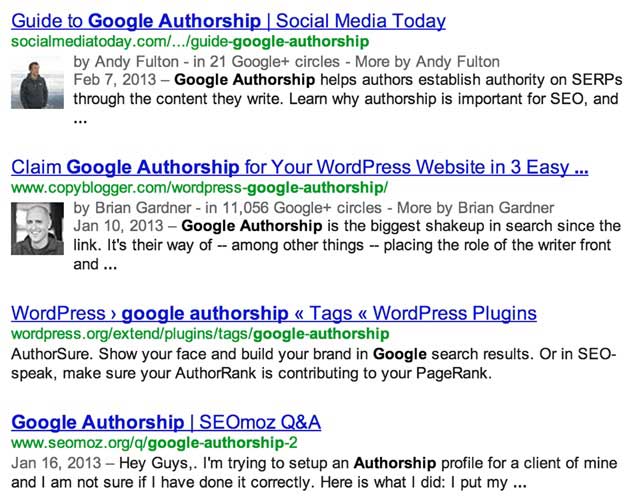Traditionally, in the era before the Internet and therefore before Google, when a person authored a work in print, it was automatically protected under copyright law (PDF). However, authors still needed to take measures to protect their words from others.
So, authors took precautions from printed theft by plagiarists in two ways. The first was to officially send a copy of an author's completed work, along with a check, to the United States Copyright Office. The second way, referred to as the poor man's copyright, was to mail a copy of the completed work to one's own residence and keep the envelope sealed. The postmarked date on the envelope would serve as a copyright stamp, unless the envelope was unsealed, of course.
Although those two ways are still appropriate for copyrighting printed material, the onset of the Internet has been a game-changer. Theft of an author's work is much easier nowadays; all it takes to lift someone's work is to highlight the desired graphic or text, and copy and paste.
With Google Authorship, online content producers now have not only some measure protection from online plagiarist but also a way to increase their search engine authority.
About Google Authorship

Google Authorship can be considered an online copyright of sorts, at least in sense that the author's online work from a blog, tweet, or website can be documented and tracked so the work does not disappear into Web obscurity.
Right now, anything that has been written on the Web that is not tracked by Google could be considered fair game for theft. However, if a writer registers his or her work via Google Authorship, the writer's work will be tracked by Google as having been authored by that person, so the theft of that work becomes more easily traceable.
Author/Agent Rank
Author (or Agent) Rank is based on two parts: the author's online persona or presence, and the content that the author has created.
To be ranked on Google as an author, one must first create an account/profile on Google's social network, Google Plus (AKA, Google+ and G+). A Google+ account allows Google to weed out potential spammers while tracking and protecting the author's or agent's content. It's easy to set up and free to obtain (more on setting up an account later in the article).
Once the Google+ account is created, articles, blog posts, and other text that authors or agents create online can be linked to Google, and the higher the Author Rank, the more visibility the author or agent will have in search results. Essentially, this is a program to reward those who are creating quality content.
Importance of Google Authorship
Google, as both a search engine and as a brand, has established and maintained its reputation for validity and trust, standing firmly behind the relevancy of its search results. Because Google does a good of job of weeding out spam and theft, readers tend to turn to Google first for online searches. That's where the importance of Google Authorship comes in. Since Google is a trusted brand, your online presence on the search engine will both increase your visibility and enhance your authority.
The ability to link content to one's Google+ account will be an incentive for authors to write exceptional work in order to increase their visibility and authority. Because Google+ is also a social networking site, its other users will link to the author's work, helping to drive traffic to the content and increasing authority further.
This is a great opportunity to practice search engine optimization (SEO) by using keywords when writing with Google Authorship, again producing an increase in rank, reputation, and visibility.
How to Create Google Authorship
How can writers create Google Authorship and start linking their work and increasing their online ethos? Follow these steps:
- First and foremost, you need to open a Google+ account. Go to Google+ and click on profile.
- Create a professional email address (or use an existing one); if possible, include your name in the email/Gmail address. Avoid cutesy addresses.
- Add a profile photograph to the Google+ account. Also, make sure that the photograph is professional and up-to-date. If possible, have the photograph professionally taken. Leaving the blank icon instead of the photograph will be considered not trustworty and off-putting to viewers. The profile photo is important one's online persona.
- Make sure the author name that appears alongside your content is consistent with the name used for the Google Profile. Consistency will make the writing easier to link to and track.
- Go to the profile button (where the profile photo is) and find Edit Profile, and select it.
- Scroll down until you see the "Contributor to." In a lighter font, it will show what Web pages feature your work. This is where you will add Web addresses or URLs of where your work can be found. After clicking the button, you will add a custom link to those pages.
- If your Gmail or email addresses are consistent, adding the link will be easy. Go to the Google+ Authorship page and simply input the addresses. If the email or Gmail addresses are different, then the reader will use HTML coding for each link.
If all that's still unclear, just follow Google's instructions for getting started.
Still Wondering Whether Google Authorship Is For You?
The amount of time required to set up your account is minimal, but the benefits to SEO professionals and authors would be worth investing hours or even days.
As Google continues to progress, one of the primary ways to get your content ranked will be Google Authorship. By taking the time to fully set up and optimize your Authorship account, you can potentially outrank much older and more established sites relatively quickly.
Not using this powerful new tool would be a terrible mistake for anyone serious about reaching more people with their material.






